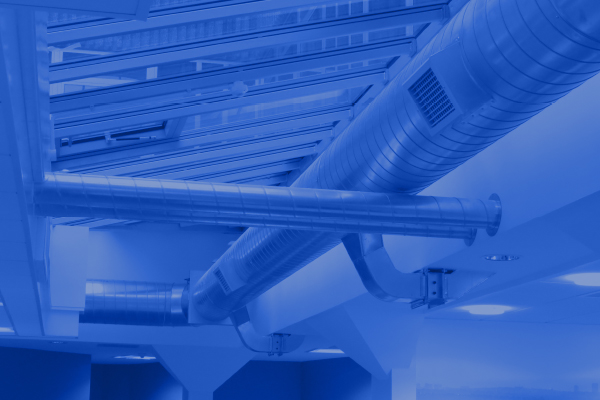A building’s HVAC system plays a vital role in maintaining indoor comfort and air quality. However, over time these systems can accumulate contaminants and common pollutants that not only affect their efficiency but also pose a health risk.
Let’s explore some common HVAC contaminants and the impact that they can have. We will also talk you through the steps to reduce these issues before they become a bigger problem.
Dust and Particles
Dust and airborne particles are among the most common contaminants found in HVAC systems. These tiny particles can include dirt, pollen and even microscopic debris. Accumulated dust forces your HVAC system to compensate by increasing its output, resulting in greater energy consumption and higher energy bills. The HVAC system is no longer able to catch contaminants, leading to reduced efficiency and poorer air quality. The particles that have accumulated in your HVAC system can then be recirculated into your indoor air reducing the quality.
Dust and particles can irritate respiratory passages, leading to allergies or asthma symptoms as well as affecting overall well-being due to reduced quality of air.
Mould and Mildew
Mould in HVAC systems is a common complaint and something that we see very often. This mould needs three things to grow: warmth, moisture and food, unfortunately moisture within HVAC systems, particularly in air ducts can create the perfect environment for mould and mildew growth. These fungi release spores into the air which can become airborne and be distributed throughout your building when the HVAC system is in operation.
This can lead to allergic reactions, including sneezing, coughing and eye irritation as well as aggravation of respiratory conditions, especially in individuals with mould allergies.
Bacteria and Viruses
HVAC systems can harbour bacteria and viruses, especially if not properly maintained. These microorganisms can grow and multiply in the filters, coils, ducts and vents of your HVAC, creating bioaerosols that then contaminate the indoor air quality. When these microorganisms are dispersed into your living or working spaces, this can cause illness.
This means that over winter you will have an increased risk of respiratory infections, including colds and flu. There are also potential health concerns, particularly for immunocompromised individuals.
Volatile Organic Compounds (VOCs)
Volatile Organic Compounds are chemicals released by household products such as cleaning supplies, paints and furnishings. Whilst this is something you may not think twice about when these compounds enter the HVAC system, they can be circulated throughout your home leading to indoor air pollution.
This leads to headaches, dizziness and irritation of the eyes, nose and throat. Long-term exposure may lead to more severe health issues, so it is important to get this resolved as soon as you can. Within an office environment, the presence of VOCs can result in a condition known as Sick Building Syndrome.
Prevention and Maintenance
To mitigate the impact of these contaminants, it’s essential to take proactive measures and ask an expert if you think that something isn’t right.
Regular HVAC Maintenance:
- Schedule routine inspections and cleanings by a professional HVAC technician to prevent a build up of contaminants.
- Change air filters regularly to trap particles and prevent mould growth.
Humidity Control:
- Maintain proper humidity levels to deter mould and mildew growth.
- Consider using dehumidifiers or humidifiers as needed.
Proper Ventilation:
- Ensure the building is well-ventilated to reduce the concentration of indoor pollutants.
Your HVAC system significantly impacts the quality of the air you breathe, and common contaminants can compromise your indoor air quality and health if not addressed. Regular maintenance ensures that your HVAC system operates efficiently while providing the best possible quality air.
At VHS, we are dedicated to delivering top-notch cleaning services that help clients achieve optimal performance from their ventilation systems.
If you need professional assistance or have any questions, feel free to reach out to our team of experienced technicians. We don’t talk hot air, we clean it!
Check out our other blog posts:

Preparing Your HVAC System for Autumn
Five things that you can do to make sure that your HVAC system is all set for the change in season.

Ductwork Pressure Testing
What is it and do I need it?